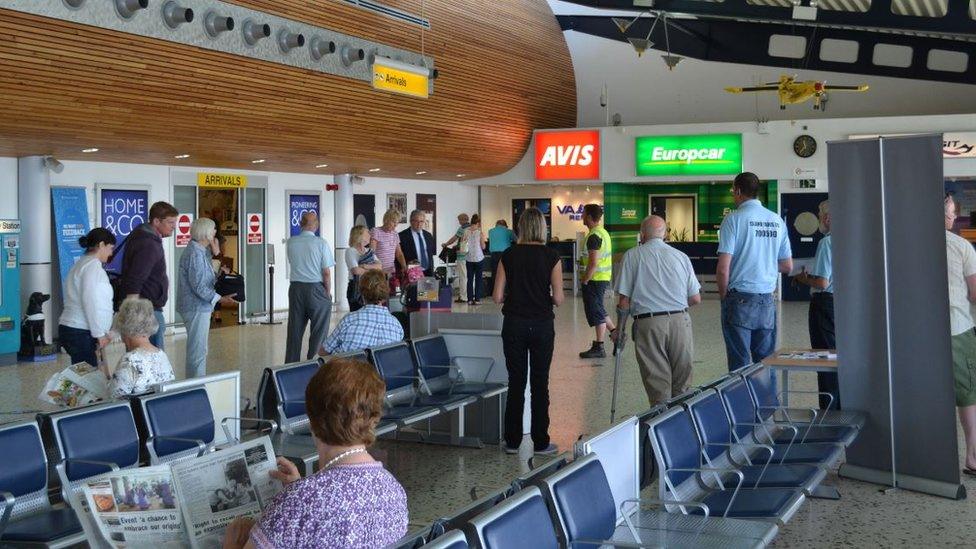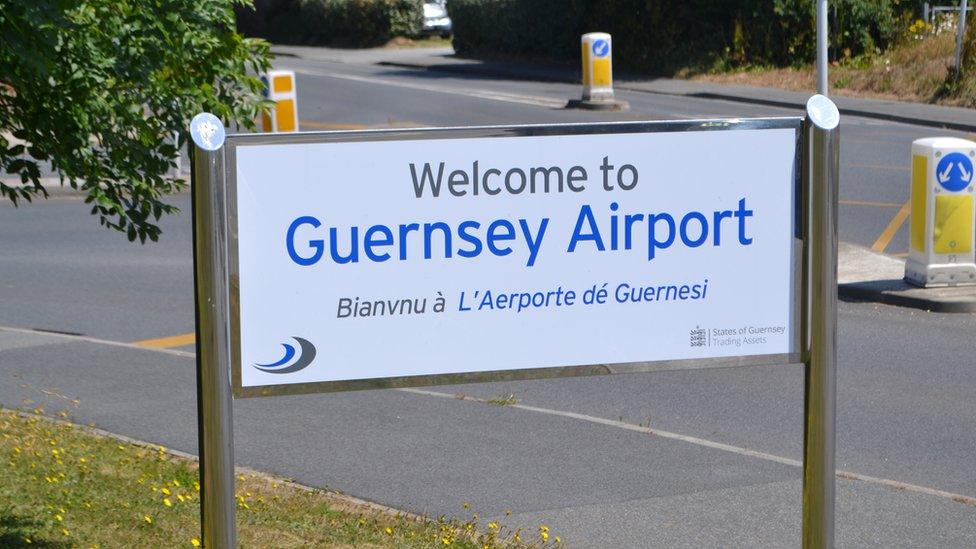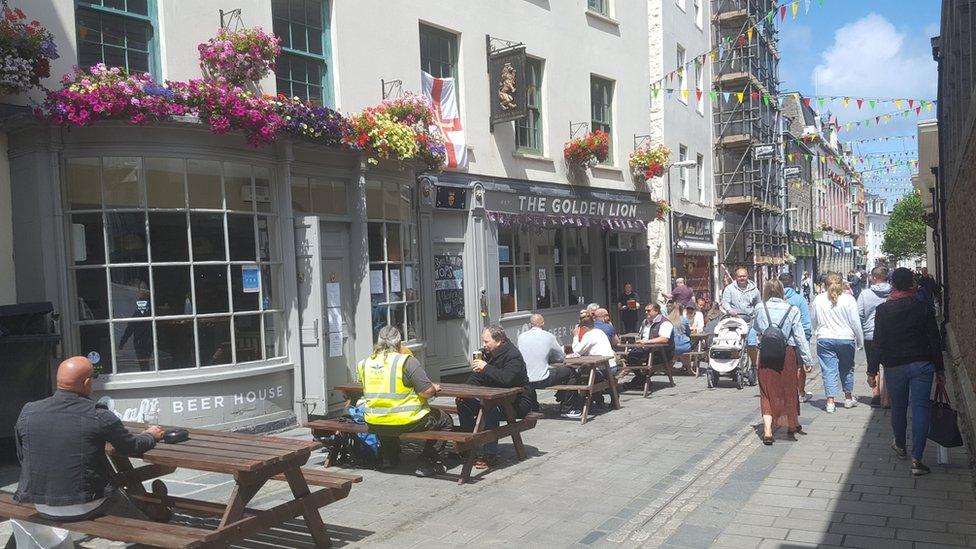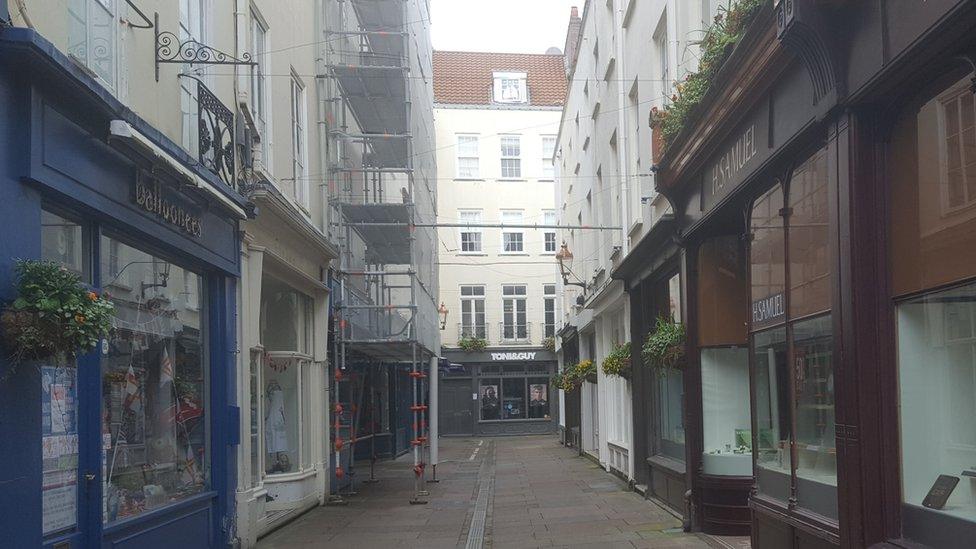Coronavirus: Self-isolation for some Guernsey arrivals cut to seven days
- Published

Passengers from some countries can opt for a test on day seven of their arrival, but must self-isolate until then
Some people arriving in Guernsey will be required to self-isolate for seven rather than 14 days, the States has announced.
Individuals travelling from certain countries can leave quarantine after a week on receipt of a negative coronavirus test result.
The new rules are due to come into effect from 17 August.
Deputy Gavin St Pier said the changes would make trips to see loved ones "manageable" for islanders.
Guernsey has kept strict border controls in place since they first shut on 19 March, despite relaxing nearly all other lockdown rules.
Countries will be classified into groups A, B and C, external, relating to their quarantine requirements.
Passengers from the UK will be given the option for the seven-day test under Category B, however some areas of the UK could require a 14-day mandatory self-isolation, the States said.
Those arriving from the Brittany or St Malo region in France must also self-isolate for the two-week period.

Arrivals can choose to self-isolate for 14 days if they do not wish to take a test
Guernsey has not had a confirmed case of coronavirus for 96 days.
Deputy St Pier said the changes had been made based on data collected from a testing trial that ran in July.
He said: "We know that people need to travel to see their loved ones and to take children to university etc.
"Reducing the self-isolation requirement to seven days, on receipt of a negative result, with passive follow up will hopefully make these trips more manageable for islanders."
Only people travelling from the Isle of Man under Guernsey's air-bridge will be allowed to enter the island without the need to self-isolate or be tested.
Sark will adopt the new rules, while Alderney will maintain a 14-day isolation period.
- Published11 June 2020

- Published22 May 2020

- Published31 July 2020
